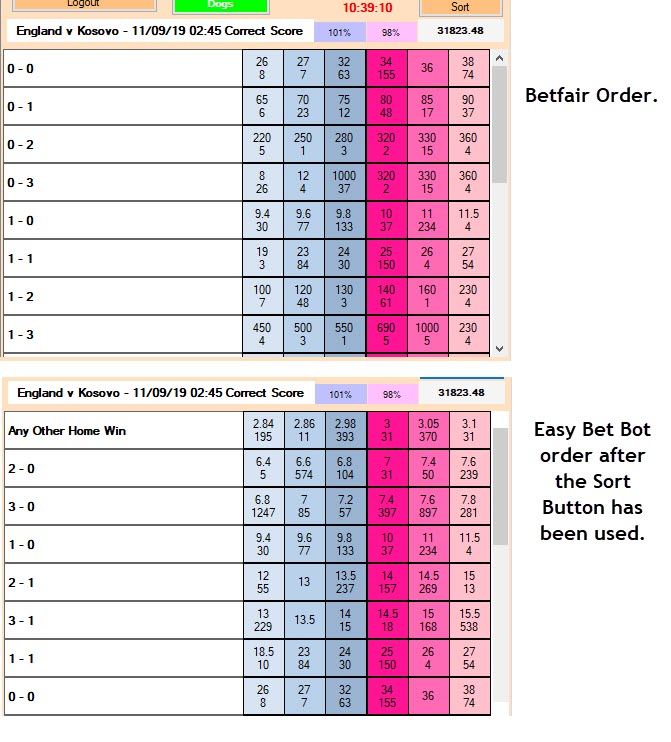

“It’s not that they have access to this data - it’s what they do with it,” said Mr. But he said gambling companies were in a delicate position because their best customers might also have gambling problems. The companies see how much the people are betting and try to predict what will get them to spend more. Nigel Eccles, a former chief executive officer of FanDuel, now owned by Flutter and one of the largest gambling apps in the United States, said online gambling companies conducted extensive data-analysis work to identify their best customers.

The data, which can be shared across at least 12 gambling services owned by Flutter, is used for marketing and personalization, while financial information is collected for money-laundering and fraud protection, the policy says.Īt least eight times in the privacy policy, the company suggests that people who don’t want all that data collected “not use our services and to close your account.” In Sky Bet’s privacy policy, which runs over 10,000 words, the company says it collects personal information including browsing history, spending, demographic data and behavioral information, such as the sports a person likes to bet on. Once controlled by Rupert Murdoch’s British media company, Sky, it is now owned by Flutter Entertainment, which owns a number of casino apps and generated about $7.4 billion in revenue last year. Sky Bet was the most popular gambling app in Britain last year, downloaded roughly 140,000 times per month, according to the market research firm Apptopia. “It shouldn’t take this much work from lawyers to figure out what’s going on.” A House of Lords report published last year said 60 percent of the gambling industry’s profits came from the 5 percent of customers who were “problem gamblers,” or at risk of becoming so. He has filed additional legal motions in Britain trying to uncover more details about what gambling companies do with the collected data, and if it is used to customize offers and create other inducements to lure customers, particularly the most vulnerable players. Naik said the data obtained thus far was just one piece of the puzzle. More than a dozen states, including New Jersey, Nevada and Virginia, now allow app-based gambling. But to a group of gambling addiction experts, data-privacy activists and industry critics in Britain, home to the world’s largest app gambling market, the documents offer a warning to players and regulators in countries like the United States, where similar services are growing rapidly. Many people view them as an innocent diversion. Gambling apps like Sky Bet make it as easy to wager as to order an Uber. Instead of using data to identify and help problem gamblers like Gregg, critics of the industry said, information is used to keep players hooked. But the company said it did not have access to certain information like banking and mortgage data, which was collected and held by outside companies.Īs gambling apps explode in popularity around the world, the documents show how one of the gambling industry’s most popular apps has adopted some of the internet’s most invasive tracking and profiling techniques. Sky Bet did not dispute that any of the records were authentic.

#Easy to wager full
He shared the documents with The New York Times on the condition that his full name not be used, out of concern that the details would imperil his career and sever relationships with family and friends. He wanted to know if Sky Bet had profiled and targeted him even as he tried to quit gambling. Gregg learned about the behind-the-scenes tracking after he hired a lawyer and took advantage of Britain’s data protection laws, which require companies to share with people what personal data they hold about them. A predictive model even estimated how much he would be worth if he started gambling again: about $1,500.
#Easy to wager software
The company, or one of the data providers it had hired to collect information about users, had access to banking records, mortgage details, location coordinates, and an intimate portrait of his habits wagering on slots and soccer matches.Īfter he stopped gambling, Sky Bet’s data-profiling software labeled him a customer to “win back.” He received emails like one promoting a chance to win more than $40,000 by playing slots, after marketing software flagged that he was likely to open them. Records show that Sky Bet had what amounted to a dossier of information about Gregg. Now he is on a hunt to know whether his favorite gambling app, Sky Bet, knew about his problems and still tried to hook him. He had lost nearly $15,000 during a nine-month betting binge, on top of two outstanding loans totaling more than $70,000 and a mortgage of more than $150,000 on his small home in Britain. LONDON - When Gregg finally stopped gambling in late 2018, he was in a dire financial position.


 0 kommentar(er)
0 kommentar(er)
